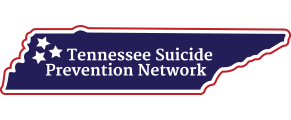Village Behavioral Health, located near Knoxville, TN, provides a multidisciplinary approach to aggression treatment. We create individualized treatment plans for teens & adolescents.
What is Aggression?
Learn more about aggression & treatment options available
Aggression is defined as a disposition or behavior considered to be hostile or attacking and may occur with or without provocation or in retaliation when someone feels that they have been wronged. Aggression is also considered to be the intention to cause harm, a way to intimidate others, or a method of increasing social dominance within a group. Aggression can take a wide array of forms, such as verbal aggression, which is shown when people yell at one another, or physical, which can be seen when an individual physically harms another. It is important to note that there is a distinction between aggression and assertiveness. While these words are often used interchangeably, they actually refer to separate, distinct, dissimilar behaviors. Additionally, aggression is not the same thing as conflict, which is a state in which two or more people have opposing goals or interests. Unlike aggression, conflict is usually resolved through tactics such as negotiation, taking turns, or persuasion. While aggression is one form of conflict management, not all conflicts involve aggression.
There are a number of direct aggressive behaviors that people can display toward one another. These may include the following:
- Hitting
- Pinching
- Hair-pulling
- Biting
- Spitting
- Kicking
- Pushing
Aggression can also lead to another more indirect approach, which may be combined with physical aggression. Indirectly aggressive behavior, or “relational aggression,” causes problems in a relationship between two or more individuals. Indirect aggression may include:
- Gossiping
- Excluding others
- Name-calling
- Bullying
- Passive-aggressive behaviors
- Spreading rumors
- Willful destruction of objects or items
- Ignoring
What Causes Aggression?
Helping a loved one get treatment for adjustment disorder
The exact cause for why some people display aggressive behaviors has been a topic of debate for many years. The most well-known theory, the social-learning theory for aggression, has been largely accepted as the root cause for aggression. This theory states that people learn to behave aggressively as a result of environmental exposures and use aggression as a way to accomplish their goals. Most people believe that the way in which you specifically express frustration in your world will depend upon what you have learned through modeling and example. Another idea is the frustration-aggression theory, which suggests that when people feel frustration and are unable to achieve their goals, they become angry and hostile, causing them to exhibit aggressive behaviors toward others.
Lots of time and resources have been put into researching the reason why one person behaves aggressively while another doesn’t. Based on this research, it has been accepted by many that there are a number of subcortical structures and circuits that play a role in controlling and regulating aggressive behaviors. The exact roles of these pathways appear to vary based upon the precipitating aggression trigger. Researchers believe that the prefrontal cortex of the brain is key to regulating aggression and other types of emotional responses. Additionally, lowered activity in the medial and orbitofrontal areas of the prefrontal cortex has been linked to antisocial behaviors and aggression. Finally, a deficiency of the neurotransmitter serotonin may also lead to aggression and impulsive behaviors.
What Causes Aggression in Children & Teenagers
Why consider treatment for adjustment disorder at Village Behavioral Health near Knoxville, TN
Childhood aggression may be the result of many different variables working together, including life circumstances, presence of mental health disorders, or underlying medical conditions. In order to manage aggression in children you first need to be able to recognize the causes for their aggression. A psychologist who specializes in treatment of children with aggression problems can help to identify the root cause for the aggressive behavior, as well as create a treatment plan for the child that will be aimed at reducing aggression. Some of the more common diagnoses that involve aggression in childhood as a symptom include:
Attention-deficit hyperactivity disorder (ADHD): Children with ADHD often have a difficult time executing good judgments and controlling their impulses. Together these behaviors may cause children to behave in an aggressive manner. Additionally, children with ADHD may exhibit aggression simply because they are unable to clearly foresee the consequences of their actions.
Autism: Autism is a disorder in which children are unable to properly process their emotions and express them in an acceptable manner. Children with autism may become frustrated and angry when they are not able to appropriately handle their emotions, leading to aggressive behaviors. These behaviors may also be the result of impulsive acts done without thinking about the consequences.
Bipolar disorder: Children in the manic state of bipolar disorder often lose control of their emotions, behave impulsively, and can behave in an aggressive manner toward others. During a depressive phase, aggression is less noted, although irritability is fairly common and can lead to lashing out at others.
Brain damage: Children who have suffered brain damage as a result of birth trauma or trauma during childhood or are struggling with a tumor in the brain often have changes in behavior and marked aggressiveness.
Conduct disorder: One of the main features of conduct disorder is aggression. Children who have conduct disorder are able to think through their actions, however they may simply not care if their actions are aggressive.
Oppositional defiant disorder (ODD): This disorder involves a child or teen who has a pattern of defiant, hostile, and angry behaviors toward people in authority. A child or teen with ODD may act aggressively toward any adult, including parents and teachers.
Schizophrenia: Schizophrenia in children produces distressing internal aggravations, such as voices telling them to behave in a certain way. During an episode of paranoia or psychosis, a child with schizophrenia may become distrusting and lash out aggressively at others.
Aggression Treatment at Village Behavioral Health
Village Behavioral Health philosophy and treatment benefits
A child who is struggling with a mental illness should always seek the qualified care of a pediatric psychiatrist who has experience working with aggressive children. Through a series of evaluations and examinations, once a medical cause has been ruled out, a pediatric specialist will work to diagnose a child who has a suspected mental disorder that’s causing the aggressive behaviors.
Treatment plan: Once a proper diagnosis has been established, a pediatric specialist will work with a child and their family to create a plan of care that focuses upon treating the underlying diagnosis and managing the aggressive symptoms.
Medication management: Depending upon the type of mental disorder a child has, medication may be used in the short term until symptoms are under control. The type of medication will vary depending upon the diagnosis. If medication is not needed to manage the underlying disorder, it may be used as a way to control aggressive behaviors for certain children.
Behavioral counseling: If a child is old enough to understand a system of rewards or consequences, a therapist may create a behavior contract with your child that will specify the outcomes for various behaviors. A child will receive a reward for positive behavior choices, and a consequence for negative, aggressive behaviors. Behavioral counseling will also address social skills, environmental triggers, and how to manage them with children who struggle with aggression.
Group therapy: An outpatient group therapy program that allows aggressive children to work with peers going through similar struggles can be a great way for these children to practice their social skills and manage aggression. Groups will also focus upon aggression-related topics as needed.
Family therapy can be a very important part of the treatment process for children who are aggressive. Family sessions will allow all family members to get on the same page in regards to treatment and ask questions of trained professionals.











